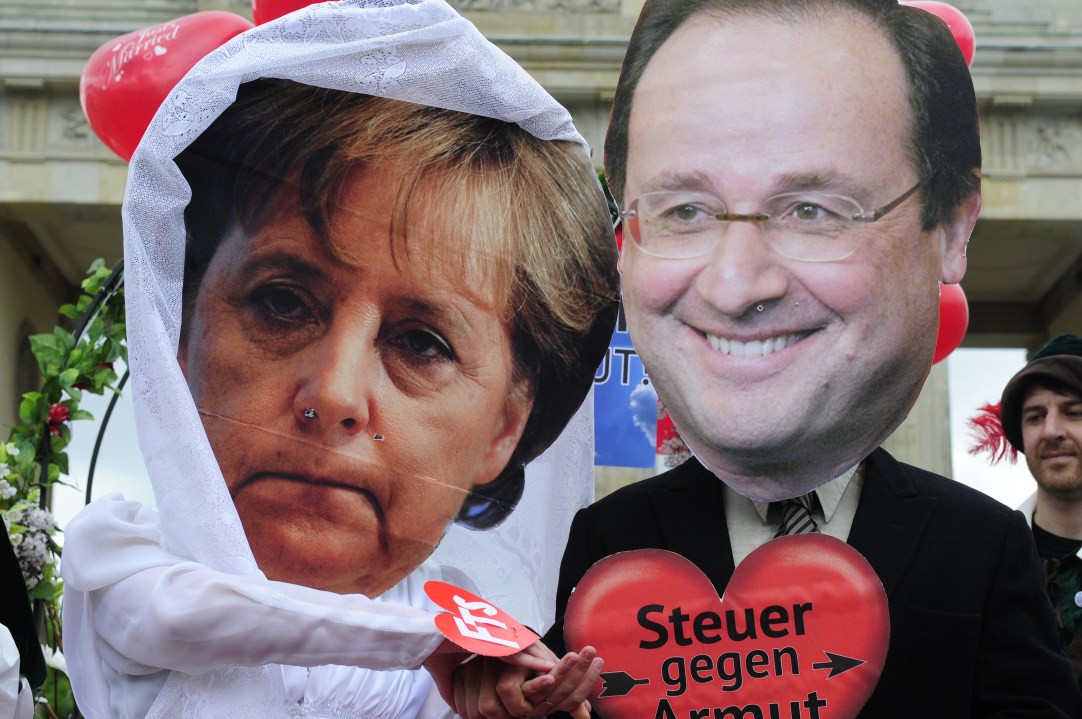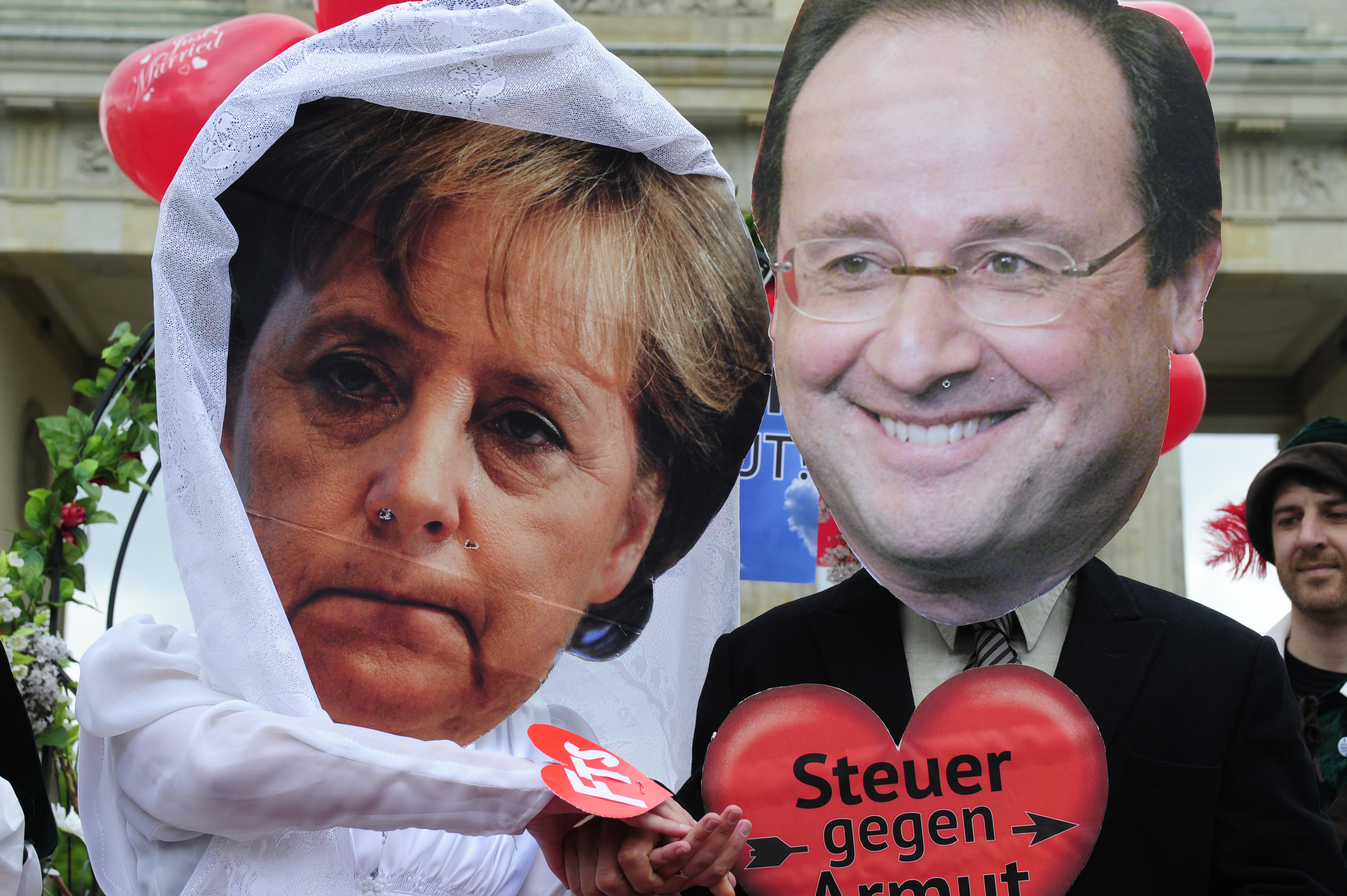This afternoon, it’s even clearer that the French and Greek elections are a significant moment in the life of the Eurozone. It’s not just the nervous market reaction to yesterday’s results, but also the way how the supranational debate has now changed. More so than ever, there are now two clear oppositional fronts. On one side, broadly speaking, are those who say that austerity is a prerequisite for growth. On the other, those who say that austerity must be relaxed for growth to arrive.
It’s a situation dripping with black humour. When David Cameron kept Britain out of Europe’s fiscal pact a few months ago, it was portrayed as a case of us against them. Now it’s more a case of them against themselves. The agreement that took Europe weeks and months to reach is now inspiring disagreement once again. Even today, Angela Merkel has slapped down Francois Hollande’s past suggestion that the fiscal pact could be renegotiated and changed, saying that the document is ‘not up for debate’. To underline the point, she added that, ‘If we start to think we can renegotiate all this, then Greece would come along and say they want to renegotiate the troika package, then probably the other program countries would follow suit. You simply can’t do this.’
Much now rests on whether Merkel and Hollande can reach some sort of compromise — and, in truth, there are signs that they might. The German government may be opposed to fiddling with the original fiscal pact, but they are happier about supplementing it with a separate ‘growth pact’. The country’s foreign minister, Guido Westerwelle, also today said that, ‘We will directly work on agreeing on a second pact, namely a pact for growth, a pact that recognises [that] more competitiveness will generate more growth.’ This is certainly close to Hollande’s current position on the matter.
Whether they can compromise beyond that, on the actual contents of a growth pact, is something that will be clarified when Hollande and Merkel meet for the first time in the next few weeks. But, remember, it’s not just the two leaders who need to agree — but also the other countries of Europe, including an increasingly jumpy Spain and an ever more mutinous Greece. Expect another round of bad-tempered eurosummits designed to work it all out. It’s like 2011 all over again.







Comments